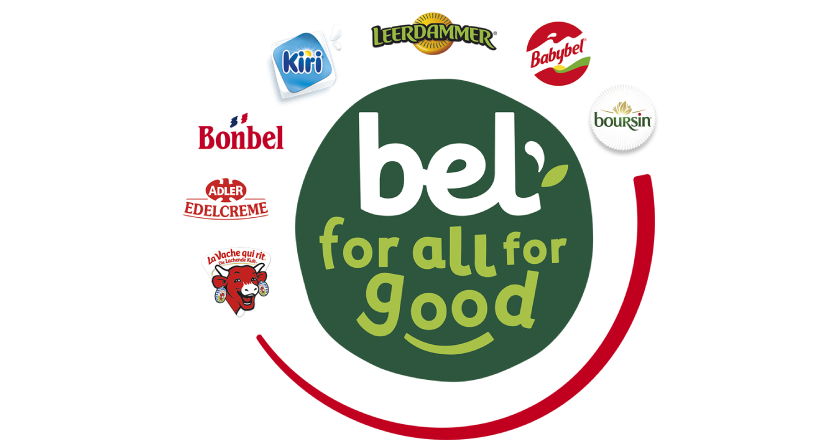The Bel Group, APBO (Bel’s Milk Producers Association in the West of France) and dsm-firmenich, in partnership with Institut de l’Elevage (Idele), the French institute for livestock breeding), have announced the promising results of a pilot project aimed at reducing methane emissions from dairy cows. Conducted on five dairy farms, the pilot demonstrated the ease of implementation of Bovaer, the feed additive for dairy cows, in real-life farming conditions. This study paves the way for a more sustainable dairy industry.
Bel group, producer of Babybel, Boursin and Kiri cheeses, and APBO, have been working together since 2018 to promote a low-carbon dairy industry. As part of this, they are studying and implementing solutions to reduce the carbon footprint of farms, such as grazing and agroforestry. All these initiatives are being carefully studied to measure their technical and economic impact on farms, as well as the reduction in carbon emissions they entail.
Now, Bel and APBO present the results from the pilot study conducted, with dsm-firmenich and Institut de l’Elevage (Idele), on five dairy farms in western France from Jan to March 2023. The aim of the study was to confirm the practical feasibility of distributing Bovaer to dairy cows under real farm conditions, using different types of ration and distribution methods.
A test representative of the diversity of breeding operations, with convincing results
Five farms were selected for the pilot project, as they were representative of the diversity of APBO farms, in terms of feed distribution equipment, type of ration at the trough and distribution arrangements throughout the day. Bovaer® was added at a rate of around a quarter teaspoon a day to the diet of dairy cows, it suppresses the enzyme, so less methane gets generated. As it acts, Bovaer is safely broken down into compounds already naturally present in the rumen.
All the data and analyses of ration samples collected by Bel technicians during the test and interpreted by experts from Idele, demonstrate the success of Bovaer® implementation, whatever the type of ration and distribution method used on the farms. Under optimal conditions of use (dosage and regularity of consumption throughout the day), the reduction in enteric methane was estimated at between 29% and 42%, depending on the farm, over the two months of the study. These results confirm the 30% methane reduction expected on average from previously published studies on Bovaer. Conducted in winter, the results of the study should be moderated at other times of the year. Indeed, when cows combine barn and pasture feeding, Bovaer® cannot be distributed during the hours when the cows are on pasture. dsm-firmenich is currently developing a slow-release form of the product which should also enable Bovaer® to be active during grazing hours.
In France, the Bel group collects 415 million liters of milk each year from the 700 APBO farms. For the past 6 years, the two groups have been working together on agreements to promote a more sustainable dairy industry and animal welfare. Through their Mon BB Lait specifications, APBO producers undertake to feed 100% GMO-free (<0.9%) cows, with access to pasture for at least 150 days a year. What’s more, all farms have already carried out a carbon audit and defined an action plan to reduce their emissions.



